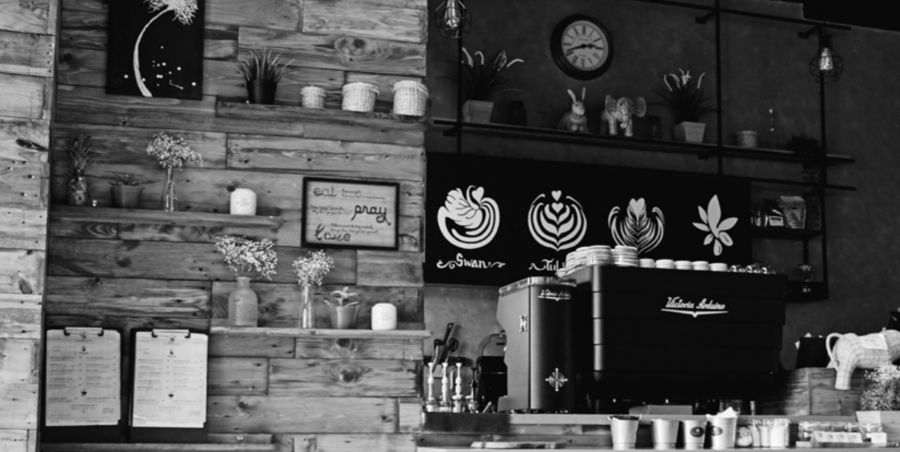My world: June 2021…
This is part of a series of articles where our contributors describe how they think things will look a year from now.
Both the offices and residential markets will migrate to the regions, and algorithms will rule our lives
I can barely remember my crowded commute of the pre- CC1 (first covid crisis) era. In the continued absence of an effective vaccine and its consequent herd immunity, it’s just normal now for us all to create spaces between us that no microbes can bridge – even when we’re networking or socialising with friends. It’s as if we’ve all become very physically stand-offish, but we’re learning to embrace with our voices and eye contact rather than through hugs.
Train carriages have been reconfigured with seats facing centre, staggered and 2m apart. The upside is a lavish amount of workspace for my journey – but I miss eavesdropping on other people’s conversations. Travel to work is only one day a week for many of us, and seats are strictly reservation-only. Urgent walk-ons are allocated standing room in a coloured 2m square at each carriage entrance, just like using a lift. (All those high- floor penthouses and offices are becoming unlettable and disinvested, because no one wants to queue to ride the elevator two at a time.)
Train boarding has become somewhat regimented and time- consuming, so I’m glad I don’t need to be in the office often. My part of the university has done no face to-face teaching for the whole academic year. It is amazing how effective we have all become online, both technically and socially. Technology has enabled us to remain international but also to become more inclusive.
For most organisations, their ‘team-based’ working days are staggered to avoid travel peaks. Algorithms rule our timetables for both work and transport as well as a range of other activities. The lockdown tested the limits of digital technologies in all kinds of ways, but it was amazing how quickly solutions evolved and became essential to our day-to-day existence. Healthcare environments were the battleground upon which a wide range of new innovations emerged, rather like the space race in the 1960s.
Change to business models has also accelerated. Retail, for example, is all but unrecognisable as supply chains have shortened and procurement is now seen as sexy. Producers of all sizes and types have developed more direct relationships with customers, with AI and distribution robotics bridging the gap between consumer demand and supply. A wide range of producers from agribusiness to artisans are using a combination of new technology and new types of real estate to first display and demonstrate, then debit and deliver their goods and services. Retail stores are being repurposed at speed: in high streets for display and demonstration, in out-of-town and failing malls for distribution and delivery.
Meanwhile many of the companies that gave up their smart offices in central London and other global cities during CC1 run their ‘together times’ for workers in flexibly leased, lower-density ‘social but distanced’ satellite workplaces that have sprung up on every regional high street like WeWork on steroids.
Young, creative workforces welcome this escape to saner housing markets. Lockdown focused minds on high rents, cramped conditions and bad neighbourhoods in global cities, precipitating an exodus when it first lifted – and a distinct preference for homes with gardens. As the metropolitan population declines, it’s as if London’s inhalation has become an exhalation. Big cities, having breathed in by centralising, urbanising, densifying and globalising over the last three decades, are now breathing out: decentralising, dispersing and relocalising.
These shifts in demand were first felt in the rental markets. House purchases, which all but stopped during March, April and May last year, saw demand remain extremely low for the rest of the year, as so many would-be buyers had been drained of savings, incomes, job security, creditworthiness and confidence. It has remained extremely difficult for valuers to price the market when the primary casualty has been transaction volumes. At the same time, latent supply is high, suppressing values: death, divorce and debt are perennial sources of available housing stock and there has been a lot of all of these since CC1.
Owners are choosing to let rather than sell in the current market, reducing the number of forced sales. This has suppressed rent levels, which has started to be reflected in capital values. Lenders in possession of all types of property are behaving in imaginative ways, swapping, managing and stewarding new portfolios of distressed assets, adding value through hands-on property and customer experience management (having learned lessons after flooding markets with distressed sales in the early 1990s). A few of these lenders have put together contiguous groups of assets and turned them into something like privately owned business improvement districts. The first is now for sale and is rumoured to have been purchased by a family office and pension fund partnership – with the current management team very much part of the deal.
One economic impact of CC1 or ‘the Great Suppression’ was to complete what had been started by the 2008 credit crunch. Lockdown may not have completely seen off the virus but it did finish off the ‘zombies’; the over-indebted companies, landlords and individuals who had survived only because of exceptionally low interest rates. It put an end to businesses, organisations and industries that were stuck in 20th-century models of operation. We couldn’t have imagined this time last year quite how foreign the early 21st century would turn out to be – but it has proved the start of a period of extraordinary innovation.
My predictions for June 2021:
UK in recession: Yes
Sterling vs US dollar: Higher
Sterling vs euro: Higher
UK base rate: Lower than 1%
UK RPI: Lower than 2%, possibly negative
Halifax UK house price index: Lower
US president: Pence
UK/EU trade deal: No
UK/US trade deal: No
When this is all over, I will find – if any survive – the best independent coffee shop I can and buy myself a proper barista-made flat white. I will savour it at a crowded table, in close proximity to complete strangers next to a plate-glass window where I can people-watch the crowds jostling by on a busy London street.








